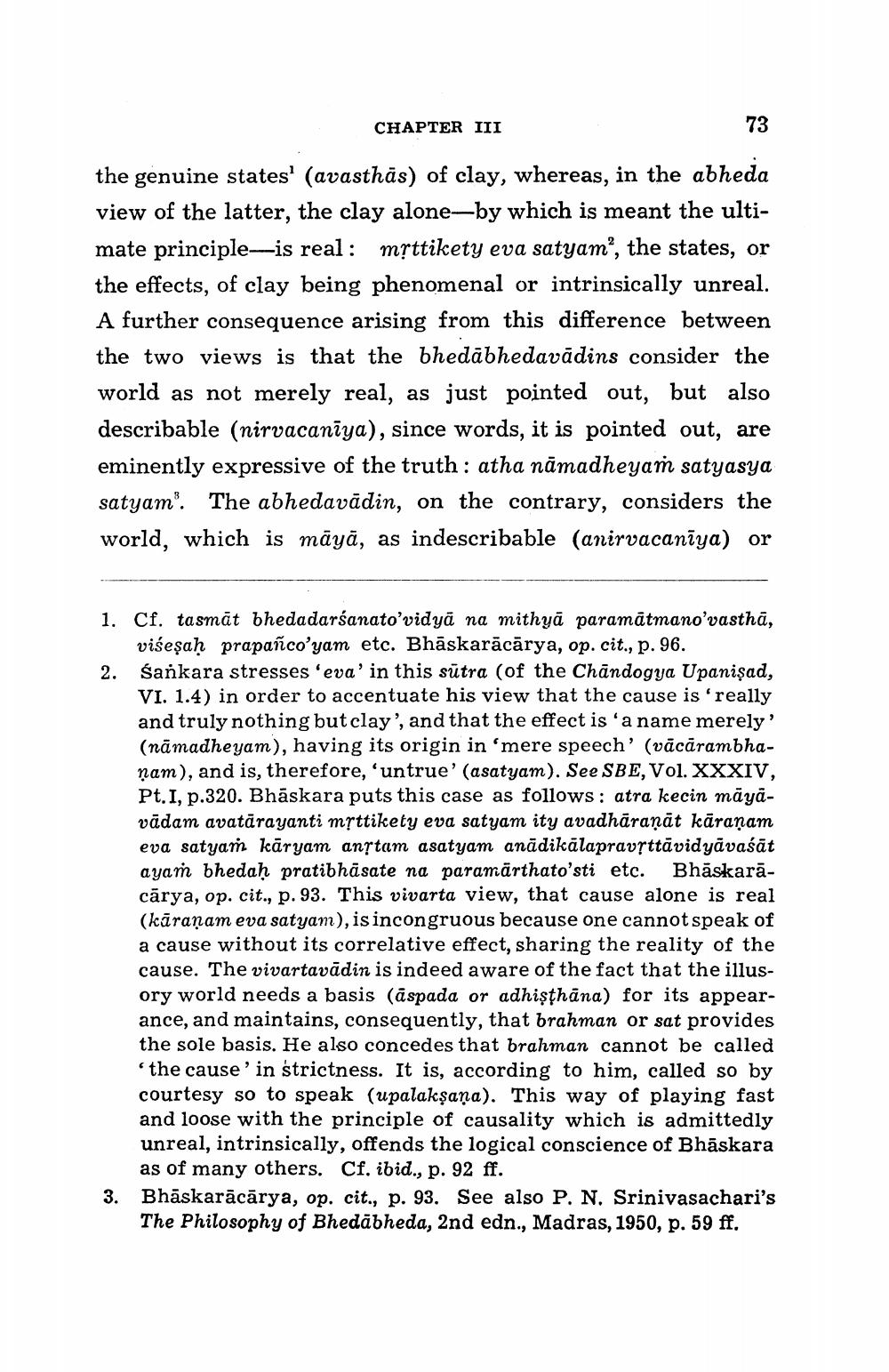________________
CHAPTER III
the genuine states' (avasthās) of clay, whereas, in the abheda view of the latter, the clay alone—by which is meant the ultimate principle-is real: mịttikety eva satyam”, the states, or the effects, of clay being phenomenal or intrinsically unreal. A further consequence arising from this difference between the two views is that the bhedābhedavādins consider the world as not merely real, as just pointed out, but also describable (nirvacanīya), since words, it is pointed out, are eminently expressive of the truth: atha nāmadheyam satyasya satyam'. The abhedavādin, on the contrary, considers the world, which is māyā, as indescribable (anirvacanīya) or
2.
1. Cf. tasmāt bhedadarśanato'vidyā na mithyā paramātmano'vasthā,
višeşah prapañco'yam etc. Bhāskarācārya, op. cit., p. 96. sankara stresses 'eva' in this sūtra (of the Chandogya Upanişad, VI. 1.4) in order to accentuate his view that the cause is really and truly nothing but clay', and that the effect is 'a name merely' (nāmadheyam), having its origin in 'mere speech' (vācārambhanam), and is, therefore, 'untrue' (asatyam). See SBE, Vol. XXXIV, Pt.1, p.320. Bhāskara puts this case as follows: atra kecin māyavādam avatārayanti mȚttikety eva satyam ity avadhāraņāt kāraṇam eva satyań kāryam anstam asatyam anādikālapravṛttāvidyāvaśāt ayaṁ bhedaḥ pratibhāsate na paramārthato'sti etc. Bhāskarācārya, op. cit., p. 93. This vivarta view, that cause alone is real (kāraṇam eva satyam), is incongruous because one cannot speak of a cause without its correlative effect, sharing the reality of the cause. The vivartavādin is indeed aware of the fact that the illusory world needs a basis (aspada or adhişthāna) for its appearance, and maintains, consequently, that brahman or sat provides the sole basis. He also concedes that brahman cannot be called 'the cause' in strictness. It is, according to him, called so by courtesy so to speak (upalakşaņa). This way of playing fast and loose with the principle of causality which is admittedly unreal, intrinsically, offends the logical conscience of Bhāskara
as of many others. Cf. ibid., p. 92 ff. 3. Bhāskarācārya, op. cit., p. 93. See also P. N. Srinivasachari's
The Philosophy of Bhedābheda, 2nd edn., Madras, 1950, p. 59 ff.




